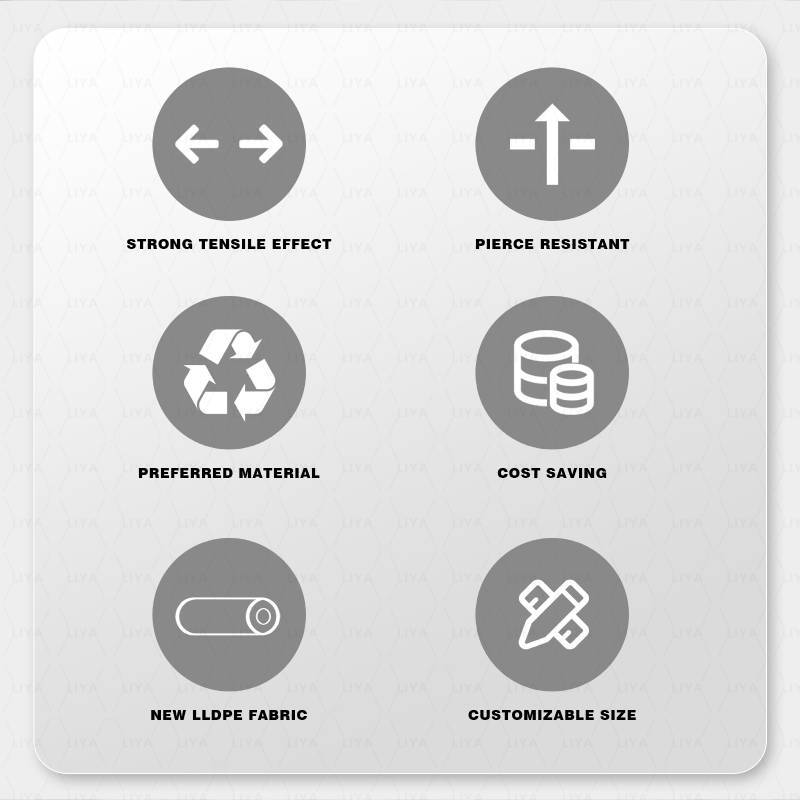Exploring the Benefits of Eco-Friendly Biodegradable Liners for Sustainable Practices
The Advantages of Biodegradable Liners in Environmental Sustainability
In today's world, the environmental impact of waste management has become a pressing concern. As industries strive for sustainability, biodegradable liners have emerged as an innovative solution to reduce landfill waste and promote ecological balance. These liners, made from natural materials, break down over time, offering a greener alternative to traditional plastic liners.
Biodegradable liners are primarily designed for use in landfills, composting, and various agricultural practices. They help manage waste effectively by preventing leachate—liquid that drains or leaks from a landfill—from contaminating soil and groundwater. Traditional plastic liners, while effective in trapping waste, often persist in the environment for hundreds of years. In contrast, biodegradable liners decompose within a few months to a couple of years, significantly reducing environmental harm.
One of the standout features of biodegradable liners is their composition. They are typically made from materials such as corn starch, sugarcane, or other plant-based substances. This means that when they break down, they do not leave harmful residues, making them safe for the environment. They contribute to soil health as their decomposition can add organic matter to the soil, promoting the growth of beneficial microorganisms.
biodegradable liners

In agricultural applications, biodegradable liners serve multiple purposes. They can be used in mulching to suppress weeds and retain moisture in the soil, enhancing crop yields without the negative impact of synthetic products. As they degrade, they release nutrients back into the soil, creating a sustainable cycle that benefits both the plants and the environment.
Moreover, the use of biodegradable liners can bolster a company’s reputation and appeal to environmentally conscious consumers. Businesses that adopt such eco-friendly practices may find it easier to attract customers who prioritize sustainability. In a market increasingly driven by ethical choices, incorporating biodegradable options could provide a significant competitive edge.
In conclusion, biodegradable liners present a promising advancement in waste management and environmental conservation. Their ability to decompose naturally, coupled with benefits in agriculture, highlights their potential to revolutionize how we think about waste. By choosing biodegradable liners, industries and consumers alike can take tangible steps towards a more sustainable future. Embracing this technology not only mitigates the environmental crisis but also fosters a culture of responsibility and stewardship for the planet.
-
Unlock Freshness with Premium Food Wrap RollNewsJun.04,2025
-
Smart Shipping Starts with the Right Mailing BagNewsJun.04,2025
-
Shine and Protect with OPP Bag PackageNewsJun.04,2025
-
Revolutionize Retail Packaging with T Shirt BagsNewsJun.04,2025
-
Elevate Waste Management with the Right Trash BagNewsJun.04,2025
-
Deliver Smarter with High-Quality Bubble MailerNewsJun.04,2025
-
Have the freedom of customizing your custom mailers any way you want! Our dedicated packaging support will help deliver you the mailing experience you need to elevate your shipping experience to the next level! Start making a strong impression on your customers and stand out from your competitors! -
LIYA uses high quality raw materials which directly purchased from large enterprises domestic and overseas such as PetroChina, Sinopec, Sabic, Equate, ExxonMobil, Dow Chemical, Total, and Borouge, ensuring the price advantage and quality of the raw materials. -
LIYA uses high quality raw materials which directly purchased from large enterprises domestic and overseas such as PetroChina, Sinopec, Sabic, Equate, ExxonMobil, Dow Chemical, Total, and Borouge, ensuring the price advantage and quality of the raw materials.





